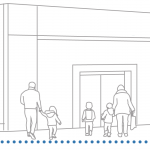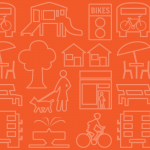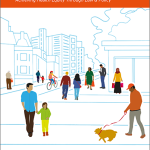Planning
Episode 4: Planning for equitable investment through community engagement
What tools can planners use to engage community members at every step of the planning process?
How can we embed equity in the process of planning, budgeting for, and investing in post-pandemic economic recovery?
In Planning for Equitable Investment Through Community Engagement, our panelists discuss community engagement as the foundation of equity in planning, highlighting the importance of building community power at this moment in the pandemic.
Planning policies guide many decisions about how, where, when, and why the public and private sectors invest in communities. But planning processes have not treated all communities equitably — they have played a central role in creating and perpetuating discrimination. To disrupt patterns of unjust structural inequity in community investments, we need a new set of tools and practices that increase community participation and control in planning processes and decisions.
This webinar isn’t just for planners; the tools and practices discussed can be used by anyone who wants to promote equity by influencing community planning and investment decisions.
Expert Panel
- Erik Calloway, managing director at ChangeLab Solutions (moderator)
- Angelica Carey, project manager at the City of Memphis, TN
- Kristania De Leon, co-executive director of the Participatory Budgeting Project in Oakland, CA
- Rudy Espinoza, executive director of Inclusive Action for the City
Highlights
Community engagement: One problem I see is that community engagement is typically tied to specific projects; engagement is fundamentally about us, not about the community. We need to create channels for community dialogue that are regular, ongoing, and provide a space to discuss issues community members actually want to talk about. We can use that dialogue to build trusting relationships and use what we learn to guide future projects. ―Erik Calloway
Local government: There are politics between city divisions ― that's very real. You need to recognize how much agency you have and where you can continue to push. You have to keep asking, are you living out your values to the best of your ability? ―Angelica Carey
One problem I see is that community engagement is typically tied to specific projects; engagement is fundamentally about us, not about the community. We need to create channels for community dialogue that are regular, ongoing, and provide a space to discuss issues community members actually want to talk about. ―Erik Calloway
Solidarity economy: I’m struck by the conversation about the prevalence of private investment across our built environment. With solidarity economic frameworks, we’re really considering ways in which private doesn't have to mean unethical or capitalistic. ―Kristania De Leon
Equitable engagement: With our street vending campaign, we would have 200 street vendors at a meeting, many of whom didn’t speak English, but the city would have only 25 translation headsets and one-third of them didn’t work. Imagine the experience of someone showing up and engaging in that process. Do you think they’re going to be excited to go back again? I hear people say we need to engage the community, but where is the money? If the money isn't there, you’re just tokenizing this whole concept. When we don’t invest in translation devices or fix accessibility systems, we are disrupting democracy. ―Rudy Espinoza
There are politics between city divisions ― that's very real. You need to recognize how much agency you have and where you can continue to push. You have to keep asking, are you living out your values to the best of your ability? ―Angelica Carey
Community power-sharing: In our budgets, are we paying community leaders for their expertise? Do we value their expertise the way we value the expertise of our colleagues or people within our city departments? We have to consider our budget; if we’re already spending money on certain things, how does that advance our goal of authentic community power-sharing? ―Kristania De Leon
Leadership: We need new leaders and professionals who are willing to do things differently. We need people who can take risks and ask hard questions and push to try new approaches. ―Rudy Espinoza
Watch a recording of episode 4:




